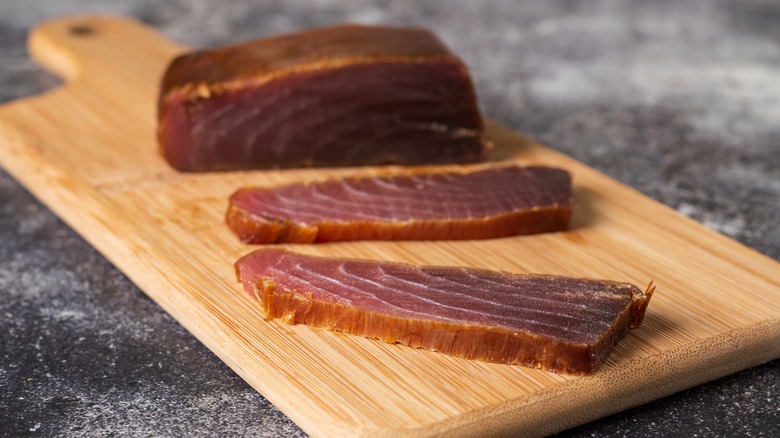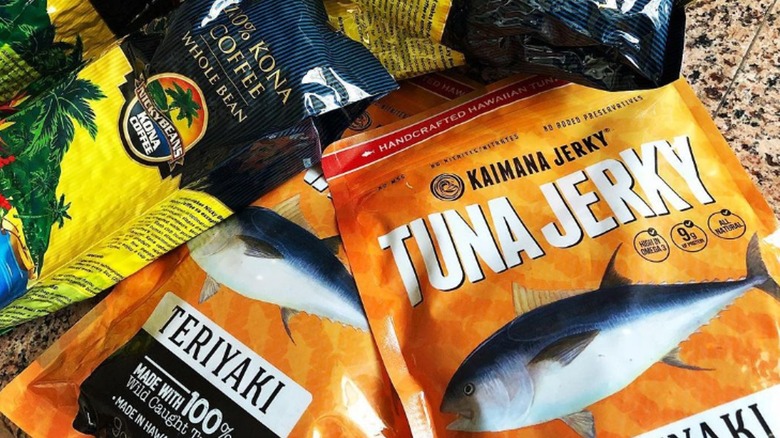Here's How Long Tuna Jerky Usually Lasts
Beef jerky is a well-known and beloved treat, but tuna jerky also has quite a few fans. This tasty and healthy snack is perfect for keeping around the home, but it's also beneficial for outdoorsy types who need lasting sustenance that can withstand rugged conditions. As for how long tuna jerky can hold up, it usually depends on whether the bag is open or unopened.
Although it ultimately depends on the brand, some tuna jerky can last as long as two years, provided that the bag has not been opened and is kept in a place safeguarded against high temperatures, moisture, and humidity. After opening the bag, the lifespan significantly decreases, especially if you're not able to place the remnants in a refrigerator. In this case, try to eat the remainder of your tuna jerky as fast as possible. This is especially true if you're enjoying a bag of smoked tuna jerky, which won't last as long as dehydrated fish jerky.
Smoked vs. dehydrated fish jerky
While you should always refer to the expiration date on tuna and other types of fish jerky, keep in mind that different processes can affect how long the product lasts. This is particularly true when it comes to smoked and dehydrated fish jerky supply heat through a special chamber, which generates steam when it comes into contact with water. The resulting steam serves two important purposes, namely, cooking the meat or fish and imbuing it with a delectable smoky flavor. However, smoked fish jerky does not have as long a shelf-life and typically only lasts a few days when not stored in a refrigerator.
Somewhat similar to smoking, food dehydrators work by supplying a consistent source of low heat to food to eliminate moisture. The lack of moisture means that dehydrated versions of fish jerky can be stored in the refrigerator for a period of two months. Even better, dehydrated fish will keep for a few weeks outside of cold storage, which makes it an ideal option for an extended camping excursion when refrigeration is not possible.
How to tell that your tuna jerky has gone bad
It's risky to eat expired food but rest assured that tuna and other types of fish jerky will provide a few obvious clues of spoilage. First, assess the texture of the jerky. Does it appear overly dry and brittle? That could mean it's becoming spoiled and should be discarded without eating. Conversely, moist and humid environments may cause jerky to take on a damp texture, unlike its expected toothsome chewiness.
When it comes to appearance, bad fish jerky can harbor mold, which may appear green or black. Bacteria can also thrive on jerky, which will leave it looking and feeling slimy. Your nose will also provide clues that your tuna jerky is no longer edible, according to Dehydrators America. In this case, spoilage can cause jerky to smell sour or otherwise off in some way. If the odor is not what you're expecting, you can just assume that the jerky is no longer safe for consumption. Remember that tuna jerky may spoil before its anticipated expiration date, so keep these signs in mind to ensure an enjoyable experience.


